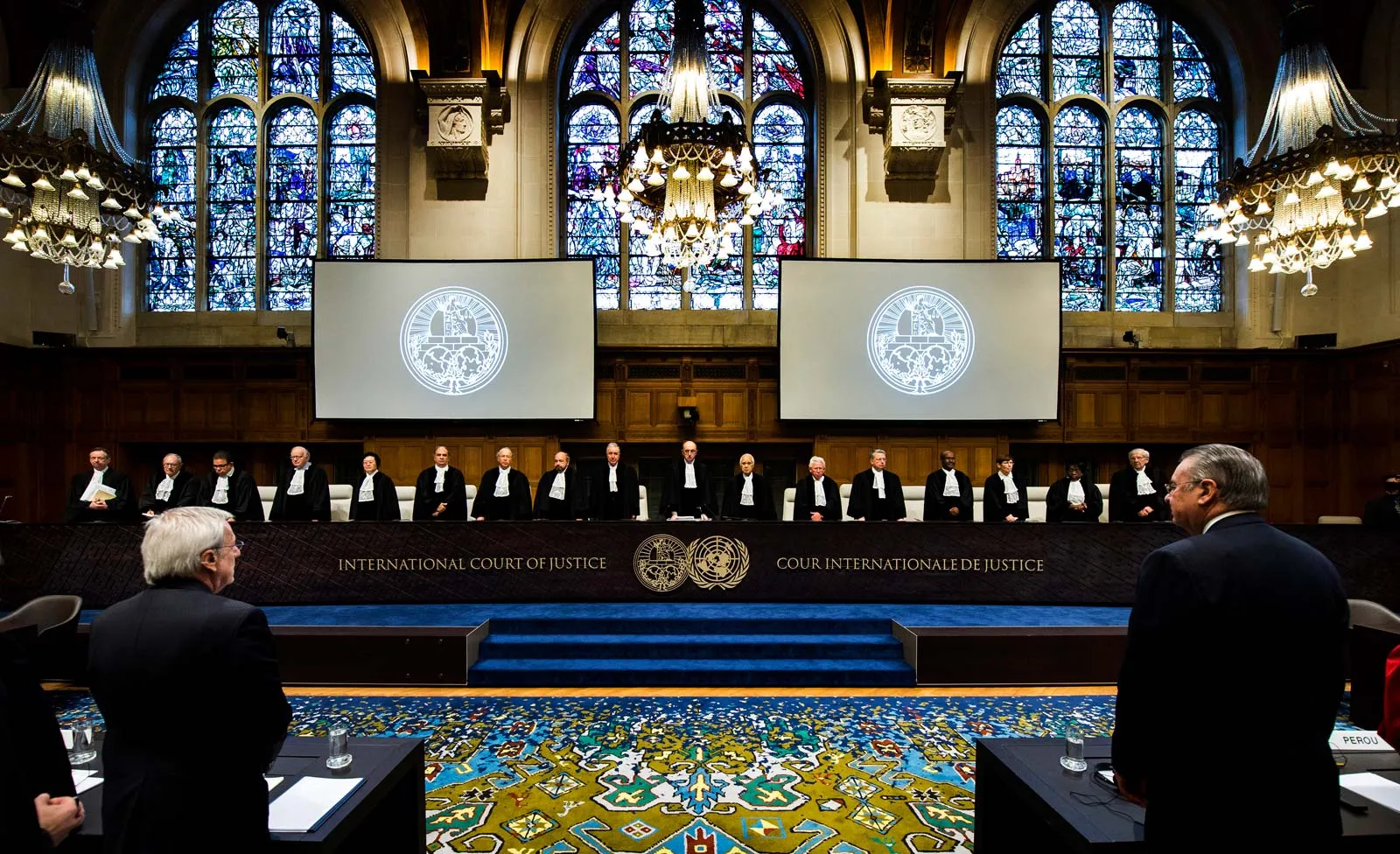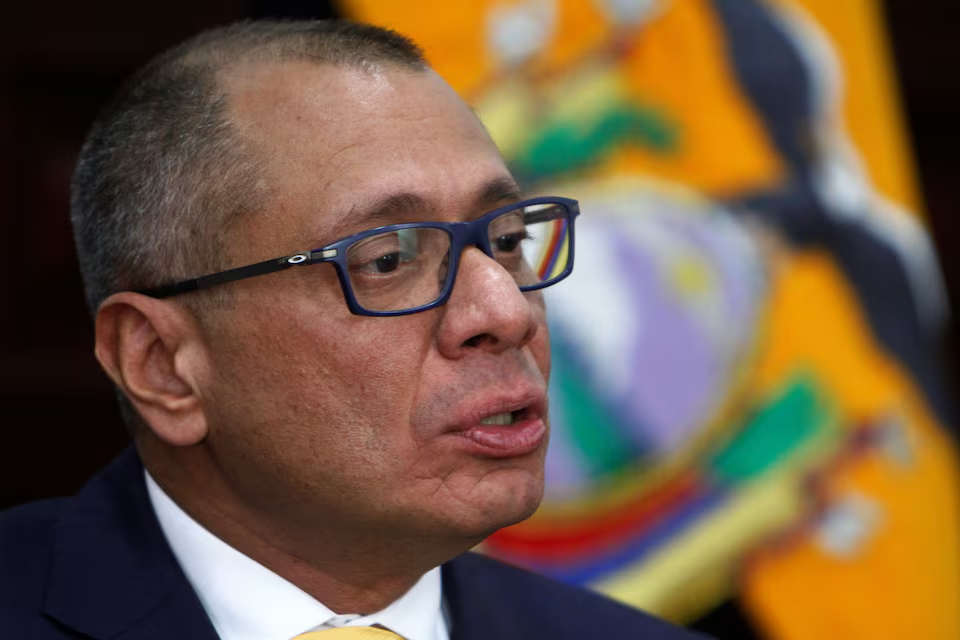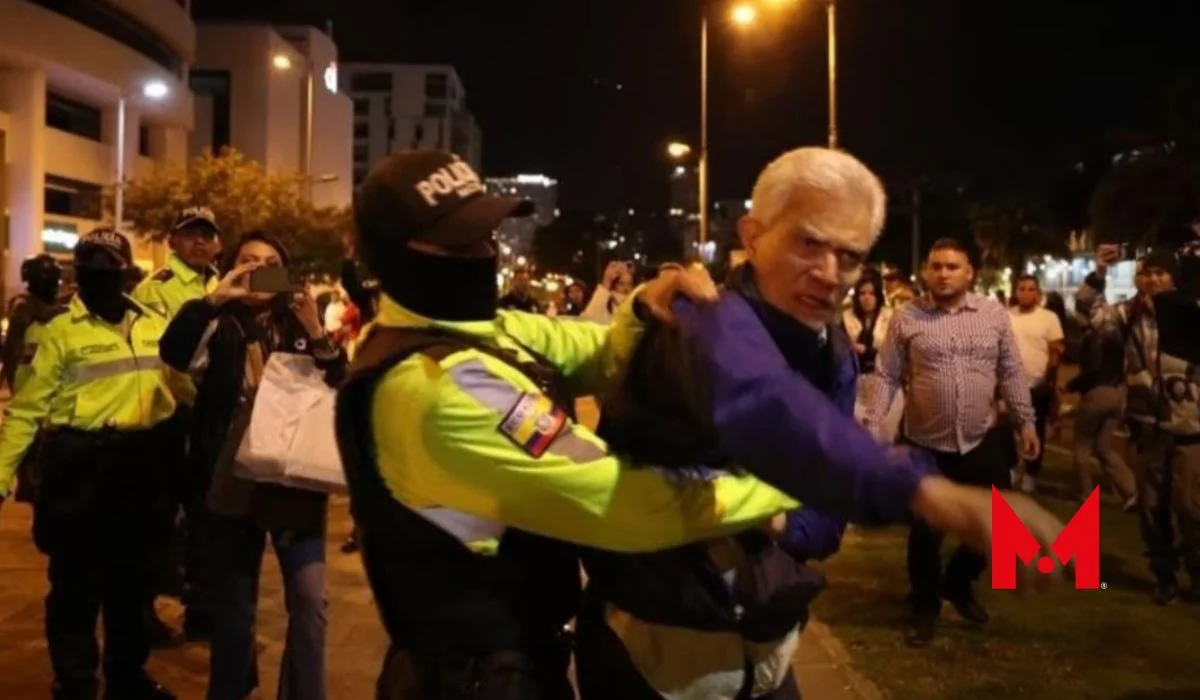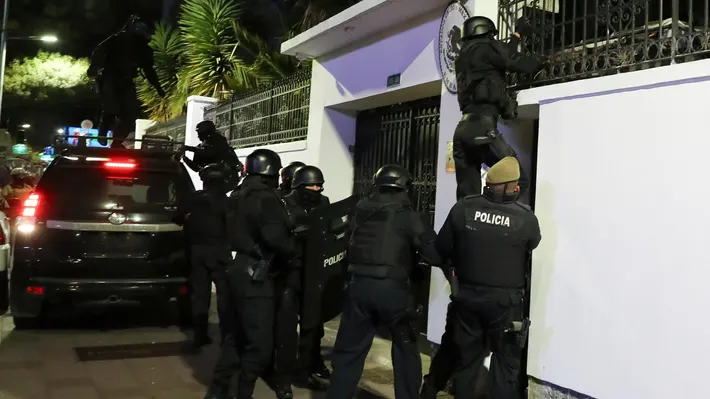Mexican President Andrés Manuel López Obrador announced on Thursday that the country has filed a formal complaint against Ecuador with the International Court of Justice (ICJ), with the President demanding that Ecuador be expelled from the United Nations.
A Budding Court Case:
Mexico claimed in its official filing with the ICJ that the raid follows “a series of continued
acts of intimidation and harassment” after Glas arrived at the embassy, which included “constant police presence around the Mexican Embassy” since the arrival of Glas.
Mexico further pointed towards the declaration of Ambassador Raquel Serur Smerke, Head of the Mexican Embassy, as persona non grata, requesting that the ambassador leave Ecuador “soon.” Mexico then claimed that following this declaration, police presence around the embassy increased further, which led to “the surveillance and harassment towards members of the mission” being enhanced.

Mexico then documented a number of cases of harassment, which included the Deputy Chief of the Diplomatic Mission being followed by a “suspicious vehicle” only for his pursuers to flee when confronted, a military vehicle parked nearby the embassy, which Mexican officials claim to be used to prevent cellphone communications, and a case where an embassy worker was followed by police, prompting the worker to return to the embassy in fear of her security.
Mexico further claimed that “Ecuador has violated Mexico’s rights under customary and conventional international law, as well as fundamental principles upon which the international legal system is based,” demanding full reparation and “to suspend Ecuador as a member of the United Nations.”
The case follows a raid conducted by Ecuadorian authorities on the Mexican embassy in order to carry out a warrant for the arrest of former Ecuadorian Vice President Jorge Glas, who was convicted on two charges of corruption.
Following the conviction, Glas fled to the Mexican Embassy in December to apply for asylum. In an application, Ecuadorian authorities claim to be illegitimate, claiming that Glas was targeted due to his criminal conviction and was not political.

The Mexican Foreign Ministry released footage of the arrest of Glas on Tuesday, which shows authorities breaching the embassy and carrying out a search of the premises before having multiple altercations with Mexican Ambassador Roberto Canseco.
Mexico stated in their filing that these altercations “undermined his (Canseco’s) dignity” and led to “injuries to his arms, legs, face, back, and neck, as well as psychological harm.”
Following the raid, Mexico broke all diplomatic relations with Ecuador, recalling its embassy staff, who returned to Mexico on Sunday. However, Ecuador’s ambassador to Mexico was allowed to remain in the nation, with Mexico reaffirming its commitment to providing legal guarantees in accordance with articles 44 and 45 of the Vienna Convention on Diplomatic Relations.

After his arrest and transfer to Ecuador’s infamous “La Roca” prison in Guayaquil, Glas was found unconscious in his cell, forcing authorities to transport him to a nearby military hospital. The National Service for Comprehensive Attention to Persons Deprived of Liberty, the organization that is in charge of administering Ecuadorian prisons, stated that Glas had passed out from lack of sustenance after refusing to eat for 24 hours.
Following his loss of consciousness, Glas received treatment from the Ministry of Public Health before being transferred to a health home in southern Guayaquil.
Analysis:
With the official filing against Ecuador, Mexico has taken its first steps towards achieving restitution for the number of alleged violations of Mexico’s sovereignty and non-compliance with international law. While the rulings of the ICJ are technically non-enforceable, Ecuador could face further pressure from nations across the world following the verdict of the ICJ if the case is pursued.
The case further shows the deterioration of relations between Ecuador and Mexico, with Ecuador remaining resolute regarding their actions while Mexico demands restitution.
Following the raid, many fellow Latin American nations as well as the United States joined in Mexico’s condemnation of the Ecuadorian government’s actions. Both leftist heads of state and those on the right joined in the condemnation, with the leftist leaders of Brazil and Colombia, along with their right-wing counterparts in Argentina and Uruguay, speaking against the actions of the Ecuadorian government.
While the United States expressed their support for Mexico, stating that they condemn any violation of international law protecting diplomatic missions, State Department spokesperson Matthew Miller further encouraged “the two countries to resolve their differences in accord with international norms.”
The Sovereignty of Embassies:
Both analysts and specialists have expressed concern over Ecuador’s raid, claiming that this violation could lead to further incursions by hostile governments into the embassies of foreign states. The embassy of foreign nations acts as that nation’s sovereign territory, while a forced entry by armed authorities could be seen as an invasion into Mexican territory, which could lead to dire consequences for the South American nation.

While entire raids are rare, there have been a number of cases relating to governments attempting various other methods in order to arrest individuals or otherwise interfere with diplomatic. In March, the Venezuelan government surrounded the Argentine embassy after members of the nation’s major opposition party, Vente Venezuela, fled to the embassy to apply for political asylum after authorities issued warrants for their arrest.
This led to a days-long siege, which culminated in the cutting of power, water, and other essentials by what one Vente member claims were state workers.


